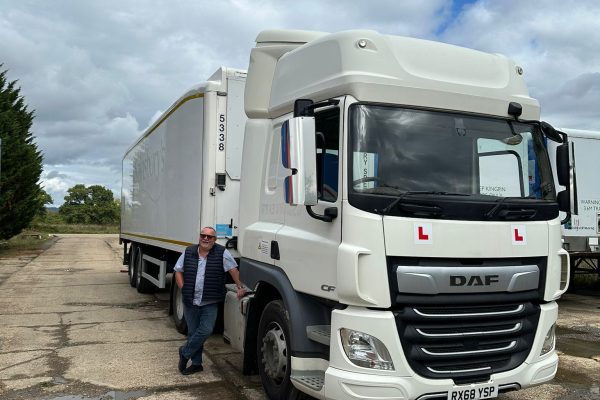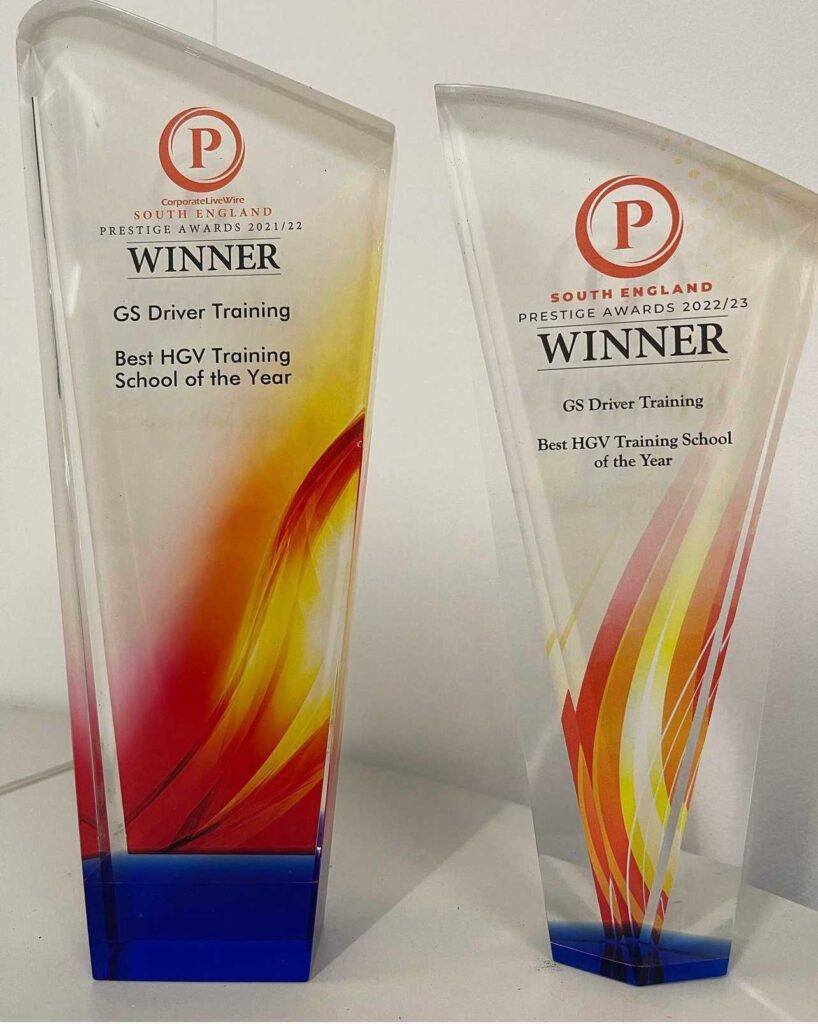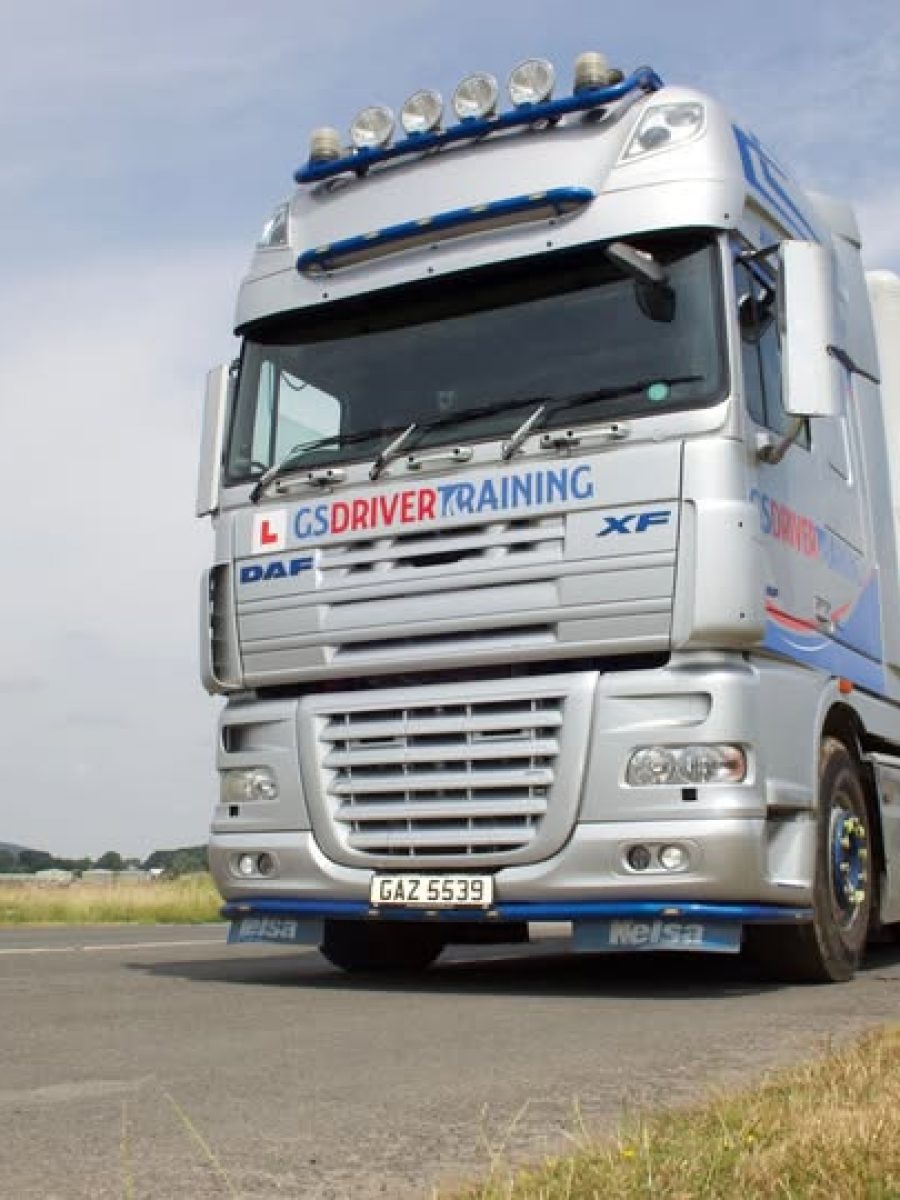What is ADR Training?
ADR training is how individuals can become certified to transport dangerous goods in Europe. By completing an appropriate ADR course, you will gain the necessary skills, knowledge, and expertise required to transport or handle hazardous materials legally. ADR certification is essential for anyone who needs to drive a vehicle to transport hazardous waste. ADR training courses can be located near you using various search terms such as “ADR course near me” and “ADR courses near me” to find the nearest institute offering the relevant ADR training.
To become certified, it is necessary to attend an ADR course and pass the final exam. The specific syllabus, duration, cost and qualifications required vary depending on the country and institution delivering the course. So start your search now and get certified today!

Reasons to get ADR Certified
With the increase in globalisation, the need for accredited ADR certificates is becoming increasingly important. It’s a certificate that showcases an individual’s ability to deal with conflict resolution and dispute management professionally and effectively – and, as such, it’s highly sought after in the modern job market. With an ADR certificate, you can prove to employers that you have the knowledge and skills to handle difficult situations in a manner that ensures positive outcomes for all involved.
ADR (Accord européen relatif au transport international des marchandises Dangereuses par Route) courses in Surrey are essential for individuals looking to become certified to transport dangerous goods safely and comply with regulations. These courses cover handling hazardous materials, including classification, packaging, labelling, documentation, and emergency procedures.
What are The Different ADR Training Courses?
ADR (Accord européen relatif au transport international des marchandises Dangereuses par Route) training courses cover a wide range of topics related to transporting dangerous goods. These courses are essential for individuals transporting hazardous materials and aim to ensure safety and compliance with international regulations. Here are some of the different ADR training courses:
Basic ADR Training
This course is the foundational training required for individuals transporting dangerous goods. It covers general principles, the classification of hazardous materials, packaging, labelling, and documentation.
Core ADR Training
Core ADR training provides a more in-depth understanding of the regulations and safety practices associated with transporting dangerous goods. It covers a broader range of hazardous materials and their specific requirements.
3 Specialised ADR Courses
These courses focus on specific classes or categories of hazardous materials, such as explosives, flammable liquids, or radioactive substances. They provide specialised knowledge and skills for handling these materials safely.
Post-Licence Guidance
We continue helping you get your licence. We can advise on potential career paths, additional training, and professional development.
ADR Instructor Training
For those interested in becoming ADR instructors, there are specialised courses that provide the knowledge and skills required to teach ADR training to others.
Emergency Response Training
This course focuses on emergency response procedures for accidents or incidents involving dangerous goods. It is often part of advanced ADR training.
Refresher ADR Training
ADR certification is valid for
five years. After this period, individuals must undergo periodic refresher training to renew their certification and stay up-to-date with regulatory changes and safety practices.
ADR Driver Training
ADR driver training is designed for professional drivers responsible for transporting hazardous goods.It includes practical training in handling dangerous materials and safety measures on the road.
Tanker Driver ADR Training
Tanker drivers require specialised training to transport liquids or gases in tanks. This course covers the unique challenges and safety procedures associated with tankers.
The courses you may need to take depend on your role and the types of hazardous materials you transport. To ensure compliance with ADR regulations and safety standards, it’s essential to choose the right course(s) that align with your job responsibilities.
Where Can I Get ADR Training Near Me?

1. Online Search
Search for ADR training providers in Surrey using popular search engines. Use keywords like “ADR courses in Surrey” or “Hazardous Goods Training Surrey” to narrow your options.
2. Contact Local Training Centers
3. Ask for Recommendations
If you know individuals in the industry who have taken ADR courses, ask for recommendations. They can suggest reputable training providers.
4. Check Accreditation
Ensure that the training provider is accredited and recognisedrecognised by relevant authorities. ADR training should meet specific standards and regulations.
5. Compare Costs
Request pricing information from different training providers to compare the costs of their ADR courses. Remember that the cost can vary based on factors like the type of course and additional services offered.
6. Review Course Details
Understand the content of the ADR courses offered. Different courses may focus on specific ADR classes, so choose one that aligns with your needs and career goals.
7. Check Exam Details
Enquire about the ADR exams and their associated fees. Passing these exams is a crucial step in obtaining your ADR certification.
ADR Certification: A Legal Requirement for Dangerous Goods Transport
ADR, which stands for “Accord européen relatif au transport international des marchandises Dangereuses par Route,” is a set of international regulations governing the transport of dangerous goods by road. It is required by law for individuals and companies involved in transporting hazardous materials. These regulations ensure the safe and secure transport of dangerous goods, protect public safety and prevent environmental damage.In the European Union (EU) and many other countries, ADR compliance is mandatory for the following:
Professional drivers who transport dangerous goods must undergo ADR training and obtain the necessary ADR certification to carry and handle such materials legally.
Companies involved in the carriage of dangerous goods must comply with ADR regulations, ensuring that their vehicles, equipment, and personnel meet the required safety standards.
Those responsible for packing, labelling, and documenting hazardous materials for transport must adhere to ADR requirements to ensure that dangerous goods are correctly prepared and identified.
Regulatory agencies and authorities monitor and enforce ADR compliance to safeguard public safety.
Non-compliance with ADR regulations can result in legal penalties, fines, and, more importantly, increased risks to safety and the environment. Therefore, adhering to ADR requirements is essential for those transporting dangerous goods by road to ensure the safety of people, property, and the environment.
What are The Different Classes for The ADR?
The ADR (Accord européen relatif au transport international des marchandises Dangereuses par Route) classes categorise dangerous goods into various groups based on the type of hazard they pose. ADR classes help standardise the handling, labelling, and transportation of these materials. There are nine primary ADR classes:

Class 1: Explosives
This class includes explosive materials like fireworks, ammunition, and pyrotechnic items. Explosives are further categorised into six divisions based on their properties and hazards.
Class 2: Gases
Class 2 covers gases, such as flammable, non-flammable, and toxic gases, typically stored in pressurised pressurised containers. Examples include propane, oxygen, and chlorine.
Class 3: Flammable Liquids
Flammable liquids are substances with a flashpoint below 60°C (140°F). They can include fuels, solvents, and many chemicals used in various industries.
Class 4: Flammable Solids
Flammable solids encompass materials that can ignite quickly, such as matches, magnesium, and certain metal powders.
Class 5: Oxidizing Substances and Organic Peroxides
This class includes materials that release oxygen and enhance combustion. Organic peroxides are also classified under this category.
Class 6: Toxic and Infectious Substances
Class 6 covers substances that can harm health when inhaled, ingested, or come into contact with the skin. This class includes toxic chemicals and infectious materials.
Class 7: Radioactive Material
Learn to operate an HGV safely and effectively. Training encompasses vehicle controls, manoeuvres, and safety procedures.
Class 8: Corrosive Substances
Corrosive substances can cause damage to living tissues or other materials they come into contact with. This class includes acids and strong bases.
Class 9: Miscellaneous Dangerous Goods
Class 9 encompasses materials that don't fit into the other classes but still pose hazards during transportation. This includes environmentally hazardous substances and other miscellaneous items.

Improved Employment Opportunities
Obtaining an ADR (Accord européen relatif au transport international des marchandises Dangereuses par Route) certification can significantly improve employment opportunities for individuals in the field of transportation and logistics, especially if they are involved in the carriage of dangerous goods. Here’s how ADR certification can enhance job prospects:
LEARN MORE
Legal Requirement:
Many employers in the transportation industry, particularly those dealing with hazardous materials, require their employees to have ADR certification to ensure compliance with safety regulations. Therefore, having this certification can make you a more attractive candidate for such positions.More comprehensive Range of Job Opportunities
ADR certification opens doors to a more comprehensive range of job opportunities, allowing you to work with and transport a broader spectrum of goods. This can be particularly advantageous in the logistics and freight sectors, where versatility is highly valued.Higher Earning Potential
Jobs that involve the transportation of dangerous goods often come with higher earning potential due to the specialised nature of the work and the associated risks. Employers may offer competitive salaries and benefits to certified ADR professionals.International Opportunities
ADR certification aligns with international standards, making it valuable not only in your local job market but also for international job opportunities, particularly in the European Union.Safety and Responsibility
ADR-certified professionals are trusted with the responsibility of safely transporting dangerous goods. This level of responsibility can be a significant factor in job satisfaction and career fulfilment.To leverage these employment opportunities, it’s crucial to select a reputable ADR training provider, complete the necessary training and examinations, and keep your certification up-to-date through periodic refresher courses. This investment in your education and skills can lead to a rewarding and secure career in the transportation industry.
Training Course:
ADR training courses are essential for individuals transporting dangerous goods. These courses provide the knowledge and skills needed to handle hazardous materials safely and comply with regulations.






